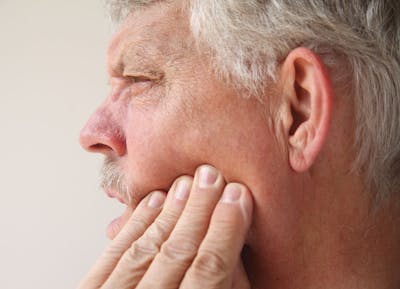
Physical Therapy treatment at Rehab Specialists can be very useful to manage your TMJ symptoms or alleviate them completely.
Your therapist will use a variety of techniques and modalities to alleviate your pain and avoid future TMJ problems. They will also provide education in order to help you better manage your TMJ problem on your own.
Firstly, your therapist will provide hands-on treatment such as soft tissue mobilization or other techniques to alleviate the tension in the muscles that control your TMJ, including the large temporalis muscle near your temple, and the strong masseter muscle at the angle of your jaw. The other smaller muscles such as the pterygoids may be massaged externally around your jaw, or your therapist may don a glove and work on these muscles from inside your mouth. Muscles in your neck, shoulders, or upper back may also require tension-relieving techniques. Other hands-on work will include your therapist mobilizing your TMJ joint if needed (externally or intra-orally) as well as mobilizing any stiff joints in your neck or upper back. Massage can be extremely effective in relieving pain originating from your TMJ as well as relieving stress, which increases muscle tension. For this reason your therapist will also teach you self-massage techniques that you can use for relief when you are at home on your own. These techniques may include soft tissue mobilization of the muscles outside or inside of your mouth. General relaxation techniques can also be useful to decrease overall stress and subsequently the tension in the muscles around the TMJ.
Several Physical Therapy modalities can be useful in decreasing your pain. Your therapist may use laser, soft tissue mobilization, or other modalities. In addition, ice or heat are simple but effective ways to provide relief both while you are at Rehab Specialists and while you are at home.
The position of your TMJ is largely affected by the position of your lower jaw, head, and neck as well as your upper and lower back. Your therapist will teach you the correct posturing to manage your individual TMJ problem and will provide strengthening exercises for your jaw, neck, and torso. Your therapist will ensure you have the strength in the postural and core muscles related to the TMJ such that you can maintain good posture throughout your day.
Your therapist will provide practical advice on a number of items that can assist you in managing or eliminating your TMJ pain. They will promote sleeping positions that do not add pressure onto your TMJ as well as remind you to not lean or rest your jaw into your hand while sitting or thinking. Your therapist will encourage you to avoid chewing hard foods such as apples, carrots, or hard/chewy candies. Chewing gum, nail biting or chewing on the ends of pens out of habit should also be avoided. In addition, foods that require you to open your mouth widely, such as burgers or large sandwiches should also be avoided or cut into smaller pieces. Your therapist will teach you how to yawn while blocking your chin from opening too wide to ensure the jaw does not overextend or get locked into an open position. TMJ positioning, stabilization, and coordination exercises will also be taught. These exercises will teach your muscles to control your TMJ so that it can function within a pain free range of motion and can do so without adding extra stress to the joint. Often the use of a mirror while you do these exercises is extremely helpful to provide feedback on whether or not your mouth and jaw are in a proper position.
- Bells/Facial Palsy
- Trigiminal Neuralgia
- Migraines/Cervicogenic headaches
- TMJ - Temporomandibular joint disorders
